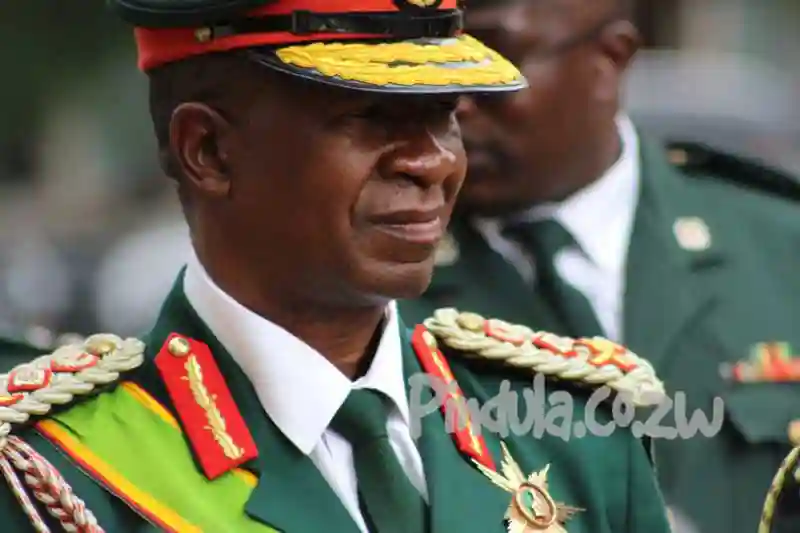Zimbabwe’s main opposition party, the Citizens Coalition of Change (CCC) has strongly condemned President Emmerson Mnangagwa’s appointment of General Philip Valerio Sibanda to the ZANU PF Politburo. Mnangagwa announced on Saturday, 28 October at the ZANU PF 20th National People’s Conference at the ZANU PF Conventional Centre in Gweru, Midlands that Sibanda, the Commander of the Zimbabwe Defence Forces (ZDF) was now an ex officio member of the Politburo. The appointment has attracted criticism from several political analysts and lawyers who say the move was unconstitutional. The CCC party said:
The Citizens Coalition of Change strongly condemns Mr Mnangagwa’s announcement of appointing a senior officer of the security forces, Army General Valerio Sibanda to the Zanu PF politburo. This action blatantly violates the Zimbabwe Constitution, specifically Section 208 (3), which clearly prohibits security service members from being active in any political party or organization.
The announcement is part of a pattern of constitutional violations under the Mnangagwa regime. Our New Great Zimbabwe Blueprint emphasizes the commitment of a CCC government to uphold the professionalism and independence of state institutions, including the security services.
The Citizens Coalition of Change will utilize all available legal means to preserve Constitutionalism and the rule of law, denouncing Mnangagwa’s abuse of the Constitution.
The relationship between the army and ZANU PF (Zimbabwe African National Union–Patriotic Front) and ZAPU (Zimbabwe African People’s Union) since pre-independence has been complex and marked by both cooperation and conflict. During the liberation struggle, ZANU PF and ZAPU had their respective military wings, with ZANU PF’s being the Zimbabwe African National Liberation Army (ZANLA) and ZAPU’s being the Zimbabwe People’s Revolutionary Army (ZIPRA).
After independence, ZANU PF gained power and the army became closely aligned with the ruling party, leading to accusations of human rights abuses, particularly during the Gukurahundi massacres in the 1980s. Despite occasional conflicts, ZANU PF has maintained influence over the military, with several key military figures holding important positions within the party.
There are concerns that Sibanda might struggle to separate national interests from party interests, especially when dealing with opposition parties like the CCC. Some analysts are worried about the biased way security officials carry out their duties. The opposition has long claimed that the police and military are deployed to intimidate opposition supporters and prevent them from holding rallies.

